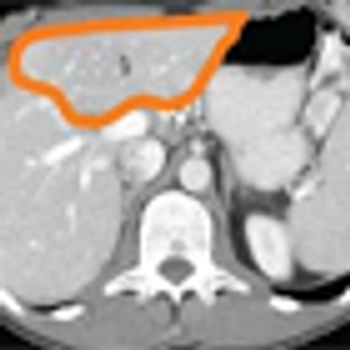
The management of colorectal cancer is a complex endeavor that requires treatment individualization founded on molecular characterization of the tumor, an in-depth understanding of the patient, and an appreciation of the interaction between the two.

Your AI-Trained Oncology Knowledge Connection!


The management of colorectal cancer is a complex endeavor that requires treatment individualization founded on molecular characterization of the tumor, an in-depth understanding of the patient, and an appreciation of the interaction between the two.

As part of our coverage of the 2014 ASCO Annual Meeting, we discuss some of the colorectal cancer research that is expected to be presented at the meeting.

In a good percentage of patients who have oligometastatic disease confined to a single organ-usually the liver-complete metastasectomy can result in cure. However, once the decision to pursue surgery is made, there remain a number of issues that must be addressed in order to ensure the best possible outcome.

In this interview we discuss the advances in treatment for colorectal cancer, as well as ongoing developments to find new and better therapies to treat this type of cancer.

Over the past decade, new cytotoxic and biologic therapies beyond the old standard-of-care, biomodulated fluorouracil (5-FU), have become available for the treatment of metastatic colorectal cancer (mCRC). The introductions of irinotecan (Camptosar), oxaliplatin (Eloxatin), and bevacizumab (Avastin) have prolonged survival, but the optimal use of these new therapies remains to be determined. Issues remain regarding management of toxicities, treatment of elderly patients or those with poor performance status, and the duration of treatment with front-line therapy. This article reviews recent and ongoing studies of newer therapies in an effort to determine the best use of these drugs in the treatment of mCRC. Current data support the front-line use of bevacizumab added to either 5-FU/leucovorin alone or 5-FU/leucovorin in combination with oxaliplatin (FOLFOX/bevacizumab) or irinotecan (FOLFIRI/bevacizumab). If oxaliplatin is used in first-line therapy, oxaliplatin should be discontinued before the development of severe neurotoxicity and be reintroduced or replaced with irinotecan on disease progression. Definitive conclusions on the sequence and duration of front-line therapy and the most effective strategy to ameliorate toxicity await results of ongoing prospective clinical trials.

Cetuximab (Erbitux), a chimeric antiepidermal growth factor receptor monoclonal antibody currently used to treat metastatic colorectal cancer, is in clinical development for several other solid tumors. Although cutaneous manifestations are the most common toxicities associated with cetuximab, they are rarely life-threatening. Cetuximab-related infusion reactions are less common, but they may become severe and cause fatal outcomes if not managed appropriately. Little about the specific etiology of these events is known; however, an overview of infusion reactions observed with other compounds may shed some light and help characterize cetuximab-related reactions. For physicians administering cetuximab, familiarity with acute reaction treatment protocols and preparedness to identify and manage symptoms promptly and effectively are most important to minimize potential risks.

Despite enormous advances in the treatment of colorectal cancer,there is no single standard treatment approach for all patients. However,there are general principles of management that can be used toguide therapy. The clinician who fails to individualize therapy forcolorectal cancer is likely not taking full advantage of all therapeuticoptions available. Reviewing key clinical evidence that can help informdecision-making, this article addresses important questions in colorectalcancer management, including: Should bevacizumab (Avastin) be acomponent of most patients’ first-line treatment? Is there a role forcontinuing bevacizumab in subsequent regimens? Is there a role forcetuximab (Erbitux) in standard first-line chemotherapy? Are therepractices in colorectal cancer that have become widely accepted withoutdirect supportive data?

Drs. Hoff, Ellis, and Abbruzzesehave provided a thoroughand useful overview of thecurrent status of the two new monoclonalantibodies, cetuximab (Erbitux)and bevacizumab (Avastin), that haverecently become available for the treatmentof colorectal cancer.

Since its development in 1957, fluorouracil (5-FU) has been the central component in the treatment of colorectal cancer. Over the past several decades, innumerable permutations of fluorouracil biomodulation have been studied. Indeed, rarely has a drug been so well understood in terms of its mechanisms and metabolism, and rarely has such an understanding been so extensively exploited in clinical strategies. But despite these efforts, overall progress in the management of advanced colorectal cancer has been modest.

The fluorinated pyrimidines, in particular 5-fluorouracil (5-FU), are among the oldest cytotoxic agents still in broad use today. To some degree, this continued use of 5-FU is a bit of an embarrassment to those of us who spend considerable amounts of

In the formal medical curriculum, little has been provided to prepare the clinician for an understanding of the economics of health care. The questions are often far more complicated than they initially appear to be, and the

Irinotecan (Camptosar) is a topoisomerase I inhibitor with demonstrated antitumor activity against a wide variety of malignancies. Phase II studies have shown that this agent has significant single-agent activity against both chemotherapy-naive and fluorouracil (5-FU)-refractory colorectal cancer. Phase III studies now indicate that irinotecan/5-FU/leucovorin combinations have antitumor activity superior to standard 5-FU/leucovorin regimens alone. These irinotecan-based combinations are now entering clinical trials for the adjuvant treatment of resected stage III colon cancer. It is hypothesized that the superior antitumor activity of these irinotecan-based combinations seen in the metastatic setting will translate into improved survival and increased cure rates in these earlier-stage patients. [ONCOLOGY 14(Suppl 14):47-50, 2000]

Postoperative combined-modality therapy with fluorouracil (5-FU) and radiation therapy is accepted practice for high-risk rectal cancer. Postoperative pelvic radiotherapy alone may improve pelvic control, but is not associated with an improvement in survival.

Hepatocellular carcinoma is a major public health problem worldwide, although at present it remains a relatively uncommon cancer in the United States. As pointed out by Dr. Venook in his elegant review of the topic, most hepatocellular carcinomas progress locoregionally. Hepatic failure is the most common mode of death for patients with this disease. For this reason, regional management strategies would appear to be attractive. Dr. Venook is to be commended for an accurate review of the literature regarding this issue. Unfortunately, that literature suffers from many limitations.

Irinotecan (CPT-11 [Camptosar]) is currently approved for use as a second-line agent in the treatment of metastatic colorectal cancer. Phase II studies have also shown substantial single-agent activity of irinotecan in the

Irinotecan (Camptosar), an active agent in the treatment of fluorouracil-refractory colorectal cancer, has antitumor activity in upper gastrointestinal cancers. Clinical trials from Japan indicate antitumor responses in gastric and

Published: March 1st 2000 | Updated:

Published: January 2nd 2001 | Updated:

Published: April 1st 2001 | Updated:

Published: April 30th 2007 | Updated:

Published: May 22nd 2013 | Updated:

Published: October 1st 2006 | Updated: